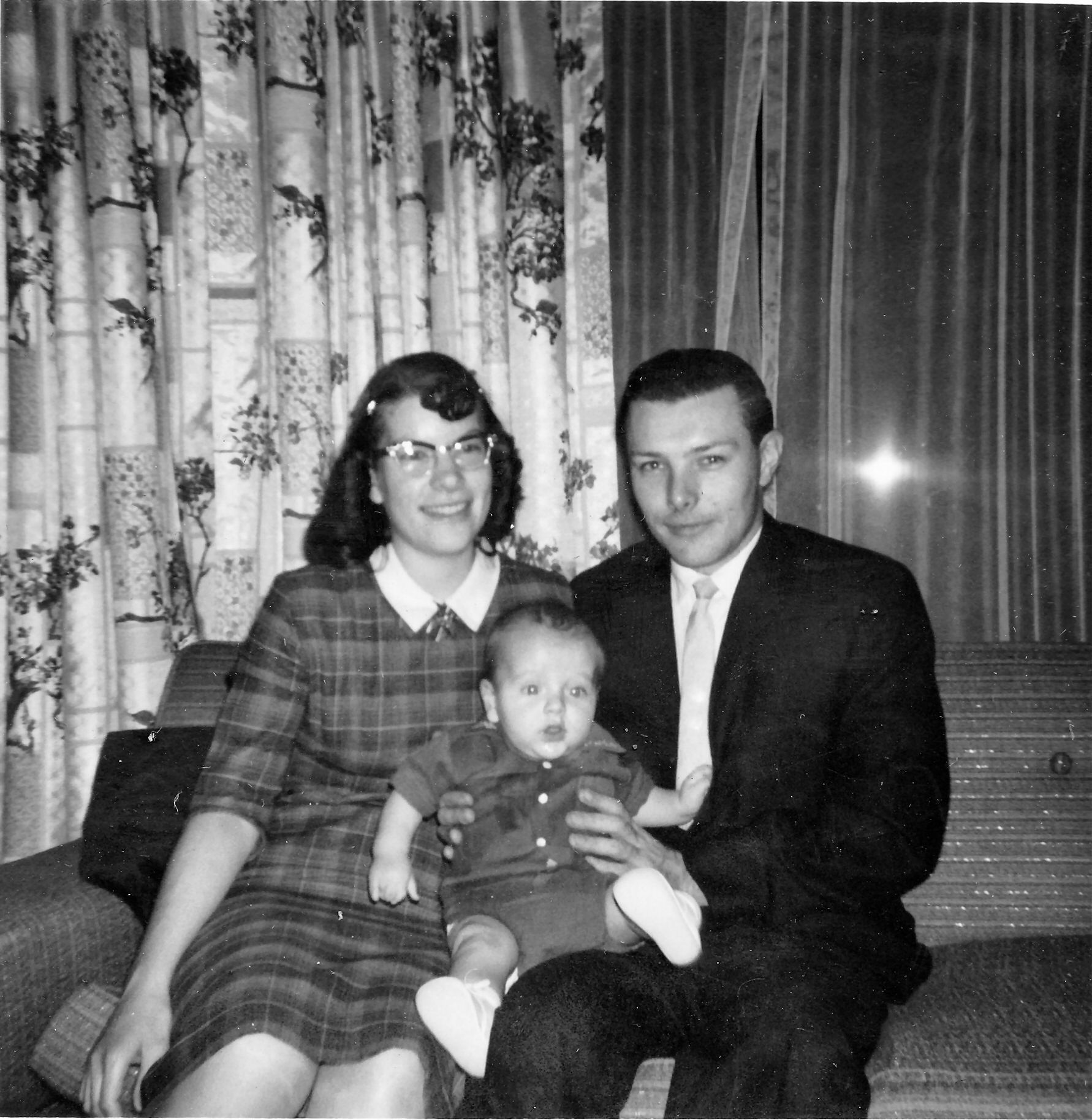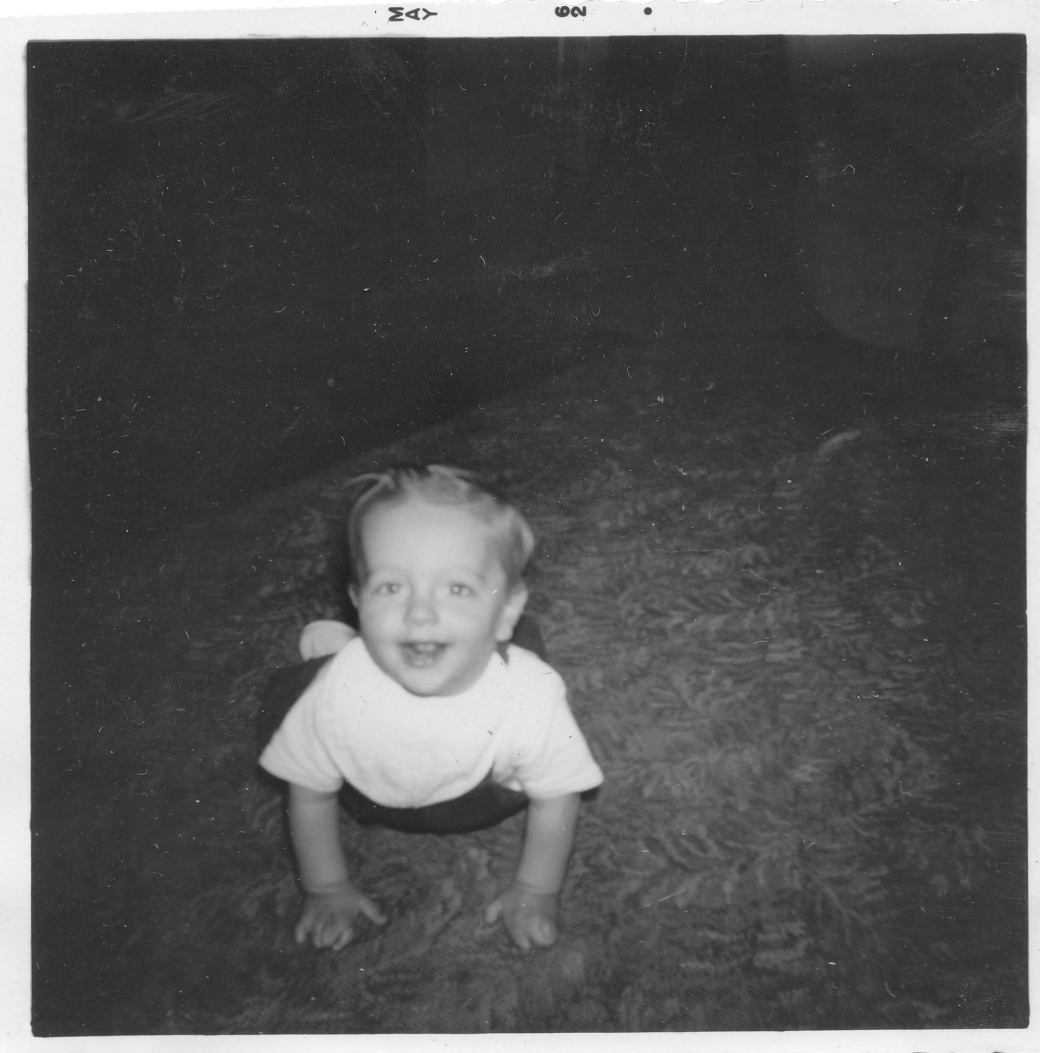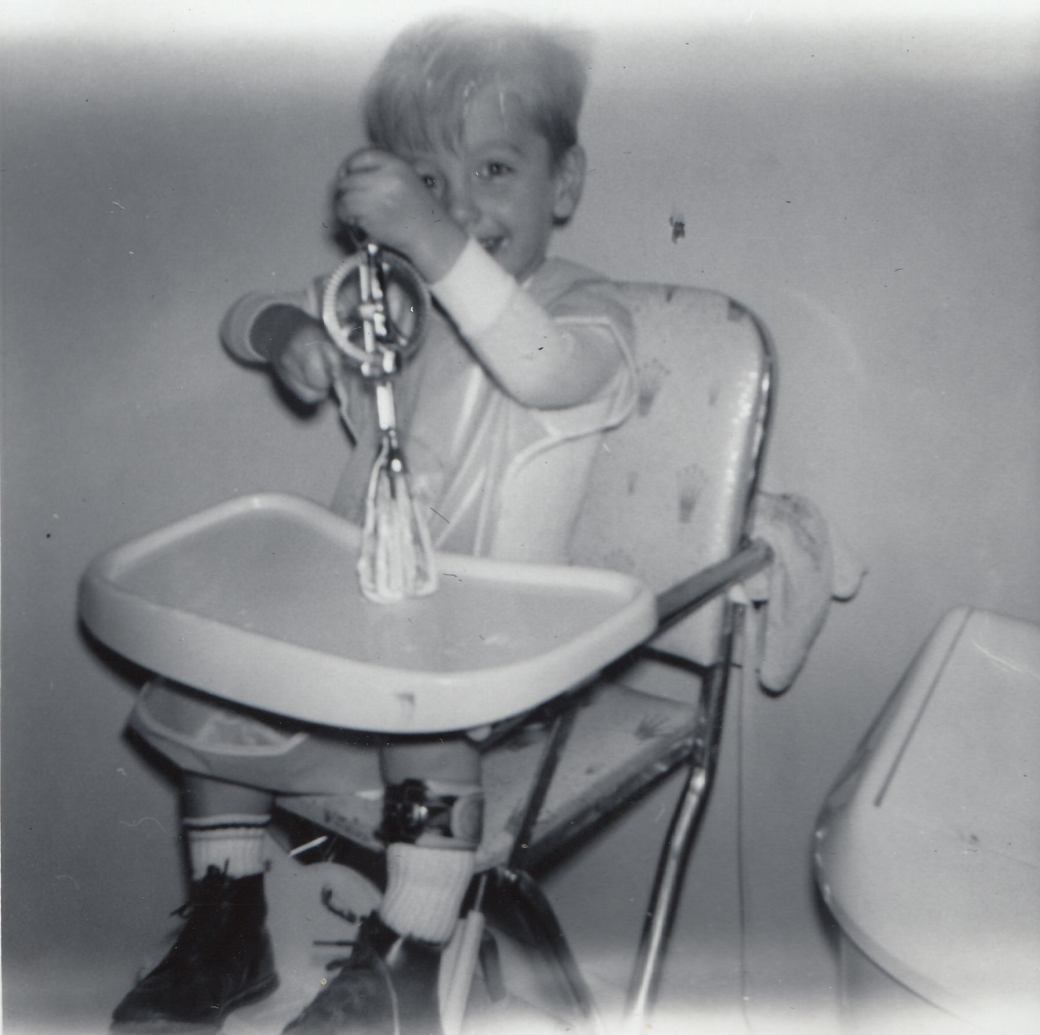My Birth – 1961
My parents were a typical lower middle-class couple. My father never completed high school, and began his working life as an unskilled laborer, eventually getting a job working for the City of Seattle where he worked in the street sign production shop. My mother completed high school, attended college briefly, and except for a short time working as an office secretary, was a stay-at-home mother. After a couple of years of marriage, they decided it was time to have a child, and in 1960 I was conceived.
There was nothing out of the ordinary in my mother’s pregnancy. As with any typical pregnancy, there was some morning sickness, she gained weight normally, but there were no complications. Her due date was sometime in June. My dad’s birthday was also in June (June 6) and my grandmother, (my dad’s mother), decided I should be born on my father’s birthday. To accomplish that, she took my mom shopping all day on June 5, reasoning that all the exercise would get labor started. Whether or not my grandmother’s method worked, my mom did go into labor that night and I was born on June 6.
My birth, what is so often a joyous occasion, immediately became something else. While in the amniotic sac, through a process that is still not fully understood, amniotic sac tissue gradually wrapped itself around the fingers of both my hands, causing my fingers to develop abnormally. My fingers were pressed together so tightly that they did not completely separate, leaving a web of flesh that left my fingers all misshapen and stuck together for much of their length. My pinky on my left hand was wrapped so tightly by an amniotic band that the bones did not grow. The ends of my fingers were so misshapen that no fingernails developed, with the exception of my right thumb, which was free of amniotic sac tissue, and my pointer finger on the right hand, which developed a tiny, clumpy looking “fingernail.”
Both of my feet were similarly affected. On my right foot the amniotic tissue wrapped around all but my large toe, causing my other toes to become completely deformed, with only two of them developing in any semblance of normal. An amniotic band completely encircled my left ankle, strangling my left foot. This caused the bones in my left ankle to become partially fused, making it impossible to bend my ankle more than a fraction of an inch. It also resulted in abnormal skin and sensory nerve development. The skin on that foot is very smooth and fragile and is prone to developing rashes. It also has no sense of heat or cold and only a limited sense of pain, making it a lot like the foot of a diabetic which has experienced extensive peripheral neuropathy.
Me, a month before I turned 1 year old. This is one of the few pictures I have of my hands before the major reconstructive surgeries.
When the doctor, Dr. Ching, presented me to my parents, he was understandably apprehensive, not being certain what to make of my birth defects. Amniotic Band Syndrome (ABS), which is the name for my condition, has been estimated to occur in 1 out of 1,200 births to possibly only 1 out of 15,000 births, so most doctors have never seen a case of it. He downplayed the seriousness of my condition, and since, in my case, the condition was not life-threatening, nothing was done immediately. Unfortunately, one of my testicles was also affected, being strangulated by an amniotic band. Since during my first few weeks home I cried a lot, my parents became more concerned. Dr. Ching suspected the possibility of cancer, and told my parents to take me to a specialist. Fortunately, being born in Seattle, Washington, there was a place they could go for help, the Seattle Children’s Hospital.
Since my parents were low income, and Seattle Children’s routinely treated charity cases, I was soon scheduled to see a doctor at the hospital. After being evaluated, the doctors were not certain whether I had cancer or not, but recommended removal of the malformed testicle, just to be safe. They also recommended orthopedic surgery for my hands, to remove the webbing between my fingers, so I would have better use of my hands. It turned out I didn’t have cancer, to my parent’s relief, but this ended up being just the first of what would eventually be eight surgeries, the remainder on my hands, feet and legs. One of my earliest memories from childhood is visiting Children’s Hospital and being examined many times by many different doctors and interns.
Since no one knew the cause of ABS (and its causes remain obscure to this day), it caused my parents a good deal of anxiety, making them wonder if there was something they had done wrong. Did my mother somehow not get proper nutrition? Did she possibly take some sort of medication that might have caused the defects? Was an illness during pregnancy to blame? Was there possibly something she was exposed to during early pregnancy? They also experienced a great deal of anguish about how they were going to raise a baby with such serious physical defects. No one in either of their families had ever experienced anything like this. The doctors at Children’s Hospital were very helpful, but the day to day concerns of how to help a little child adjust to a handicap like this were initially overwhelming.
As devout Christians, my parents also questioned why God would allow such a thing to happen to their baby. Although there is never a good answer to such a question, they gradually accepted that bad things just happen sometimes, and that God would help them raise me as best they could. I have struggled at times with this as well, and sometimes I am asked by friends, “don’t you wish you were born with normal hands and feet.” Even though it would be easy to wish for that, over the years I have concluded that without my hands and feet the way they are, I would not be the person I am today. They have become a part of my identity, who I am, and I am okay with that.
Life may have been easier if my hands and feet were normal, but would I have accomplished the same things in life? Would I have developed the resiliency I have today? Would I have developed the same compassion I have for others who have also suffered in life because they were somehow born different, or who were somehow made different due to life circumstances? Because I have had to come to terms with being seen by others as somehow damaged or less than, I learned to empathize with others with birth defects, and also with those who have experienced racism, sexism, and rejection due to “different” gender or sexual orientations. Rejection and ostracism is something I and many others who are different have experienced over and over.
At an early I was encouraged to use my hands. My parents never acted as if there were things I couldn’t do. Note the leg brace on my left ankle in this picture. The bones in that ankle were only partially fused at birth, and the ankle perpetually turned inward, making it hard to walk. Some of my doctors believed I would never walk very well, and certainly never run. More on that another time.
I have also come to the realization that I am not abnormal or damaged, I am just different, and different does not mean bad, or less than. Like anyone, I have certain talents and I lack others, and being born with ABS was not the primary factor in determining many of these talents. Sure, some things appear like they would be more difficult for me to do, but as with all skills, practice generally enables the skill to be developed. It never seemed harder to me, maybe, because my parents, very early on, decided to not limit me, or make excuses for what I couldn’t do right away. Their consistent response to me was, “you can’t do it now, but you can learn, and if you practice, you can do it.”



As a mother to a little girl with ABS I worry about how she will be perceived. Thank you for sharing your story.
LikeLike
It is scary, I am sure. I know, from talking to my mom, that she worried a lot about that. Let me say this, though, my parents were so supportive that, even though I suffered some from kids who made fun of me, I always felt safe. Other adults in my life also made a big difference too, always assuring me I was okay. In my next blog entry I am going to talk some about that. Being very clear with other adults in your child’s life, can help build a strong support network for both you and your child.
LikeLiked by 1 person
We have a strong family support group. She is never singled out or “babied”. We make it very well known to all adults not to treat her any different. 🙂
LikeLiked by 1 person
So good to hear. Babies with ABS need all the support they can get, and being treated as much like any baby is so helpful. I didn’t even really feel like I was handicapped until the bullying in school started. I will be writing about that in later blogs.
LikeLike
I was born with a clubfoot too… Life has not been easy but Gods grace has been sufficient… Unlike most people born in the 70’s in advance world where they undergo correction.. Mine remained untouched .
Thank you for inspiring me .
LikeLike
I have a met a few others with ABS, one who didn’t even know that was what they had and had received no corrective surgeries to fix her fingers. I feel blessed to have had parents that found treatment for me. I feel sad that some did not get the help that could have improved life. God Bless!
LikeLike